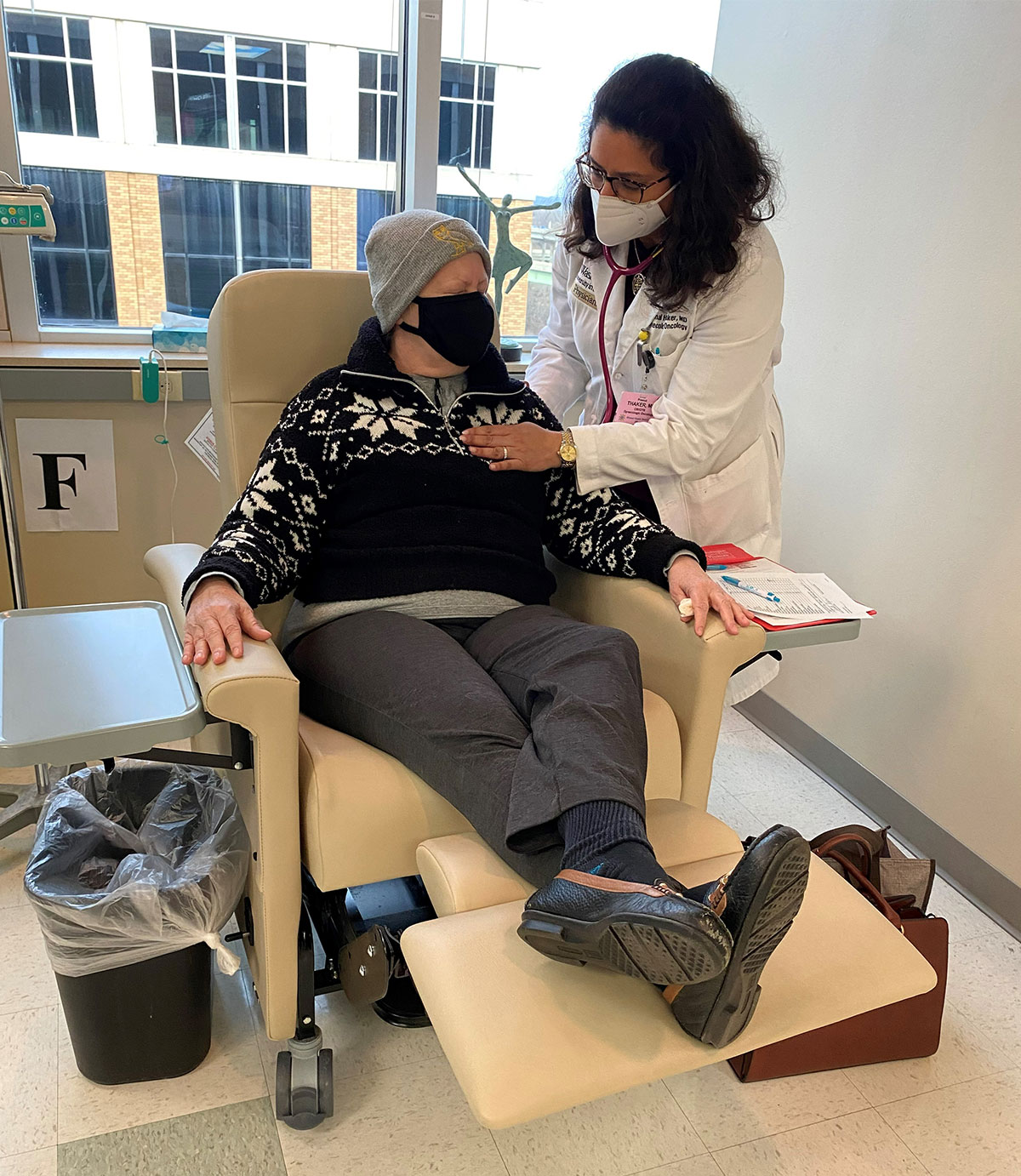The Celsion Corporation is developing a novel treatment for ovarian cancer that, in tandem with chemotherapy, is prolonging the lives of patients.
The Celsion Corporation is dedicated to researching new treatments for cancer. One of their current clinical trials involves a novel therapy for ovarian cancer called GEN-1, which is showing signs of improving patients’ chances of eliminating cancer cells during chemotherapy.

Dr. Premal Thaker
Professor in Gynecologic Oncology, Washington University School of Medicine
“In the United States, approximately 20,000 cases of ovarian cancer will be diagnosed each year,” says Dr. Premal Thaker, professor in gynecologic oncology at Washington University School of Medicine, who is helping lead Celsion’s clinical trial. “It will kill approximately 13,000 of those women, making ovarian cancer one of the deadliest gynecologic malignancies.”
Ovarian cancer is often difficult to cure because it’s typically detected and diagnosed when it’s already progressed to a late stage. “Symptoms for ovarian cancer are very vague,” Thaker says. “They could be simple, like changes in bowel habits, changes in urination, or changes in appetite.” However, these symptoms are often thought of as just a normal part of aging. “Because it’s not detected early, these patients often present with metastatic disease. That’s why they unfortunately don’t have as many curative treatment options. The cancer is already well established by the time they come to diagnosis.”
A potential new treatment option
Treatments for ovarian cancer are currently limited to surgery and chemotherapy. “Ideally we try to have patients undergo surgery if they’re thought to be medically fit,” says Thaker. Doctors will check to make sure they’re able to remove all the cancer surgically, which can be difficult. The second treatment option is chemotherapy followed by surgery.
Celsion’s innovation with GEN-1 is to inject an immunotherapy agent — an IL-12 DNA plasmid vector — directly to the site of the cancer, which, along with intravenous chemotherapy, directly targets the cancer cells and helps boost the body’s immune system. “It’s novel because we’re able to actually get the medication to patients in the abdominal cavity where the cancer is,” Thaker explains. “When we give chemotherapy first, the idea is to shrink the tumor so that surgery can be more successful in removing the entire tumor. We are studying to see whether GEN-1 improves this paradigm of therapy.”
GEN-1 is administered every week to patients in the clinical trial, concurrently with their chemotherapy treatments every three weeks. “We can see these changes in the cancer cells biologically, which is very encouraging for us because chemotherapy is definitely helpful, but it obviously is not enough to keep the cancer away,” says Thaker.

The importance of trial participation
GEN-1 is currently in a randomized Phase 2 clinical trial called OVATION 2, with spaces still open to patients wanting to participate. However, the COVID-19 pandemic has made it harder for medical centers to enlist patients into these vital clinical trials. “COVID-19 has definitely not helped with encouraging patients to enroll in clinical trials, mainly because patients are scared to come to medical centers,” Thaker explains. “My concern is that some of those patients who are really fearful may never get to us.”
Thaker reminds patients and those suffering with ovarian cancer that participating in clinical trials is the best hope for better treatments to be discovered. “Remember that the treatments we accept today as standard of care are because of brave people ahead of you who participated in clinical trials,” she says.
Cancer treatments have been a challenging area of research for decades. What gives Thaker hope is seeing these advances such as GEN-1 which are giving patients a better chance at winning the fight with cancer. “The real bottom line for me is that we want to have hope for these women so that we can have better outcomes,” she says. “I feel like breast cancer gets a lot of attention and a lot of great press. However, ovarian cancer equally deserves that attention because these women are fighters and want to be part of that survivorship.” To learn more about the OVATION 2 study, please visit www.ovariancancerstudy.com.



